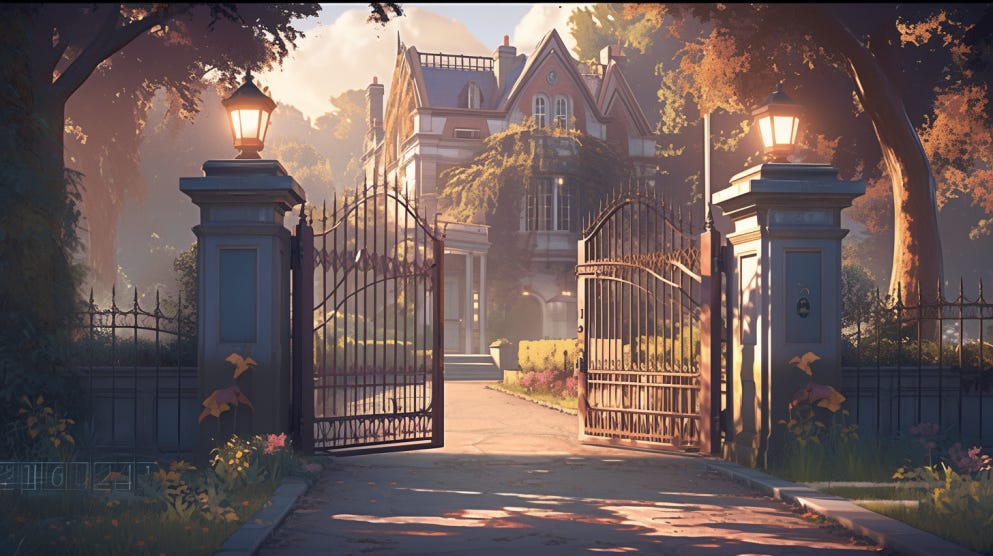
As we navigate October, one of the most beautiful months, Gothic Book Club members (that’s you!) have been savoring the delights of Shirley Jackson’s We Have Always Lived In The Castle. Savoring is the appropriate word too, as to gorge upon this book would be quite the discredit.
Jackson’s economical use of language, and deft narrative methodologies are the reason why her short fiction is so effective. This is also how she is able to fit so much depth, intrigue and suspense into a 150 page novel.
Let’s explore the first third together…

Mary Katherine (Merricat) and Constance (Connie) Blackwood exist within a world absent of adult supervision or influence. An ailing uncle (to whom Merricat is trying to ‘be more kind’ - a sinister statement echoed throughout the opening chapters) is the only adult in the house, and his existence and wellbeing seems dependent on the actions and care of his nieces.
We learn early on of a tragedy within the dwelling; a mystery surrounds the death of the girls’ parents. It’s revealed that, while suspected of being involved in their passing, an acquittal was given and the girls remained free to continue their lives within Blackwood. Throughout the locality, they are treated with a combination of fear, suspicion and distaste.
Merricat serves as narrator, but her reliability is questionable; something which becomes apparent when her childish playfulness and moral ambiguity comes into focus. Upon the arrival of some local visitors, Merricat lays it on thick; a joyfully sinister and, frankly, hilarious early example of the black humor contained within.
“You were teasing her Merricat.”
“A little bit, maybe. I can’t help it when people are frightened; I always want to frighten them more.”

The girls are the epitome of familial gothic. The old house, filled with remnants of past lives (including their own - even the library books which were taken out six years ago remain on the table), is somewhat of a playground for them. The result of a lack of supervision and the emotionally immature nature of the girls (as a result of them being somewhat locked into a perpetual childhood) give strong indications of terrible things to come.
But what are your thoughts? I’d love to know. Personally, I am thoroughly enjoying the sense of playfulness and place. There’s a dark strain of humor which is right up my street, as well as a foreboding sense of unease which I know is going to increase as we progress.
Please let me know how you’re getting on with it all. Thanks, as always, for your contributions, discussions and insights. They’re always amazing to read.




Since we didn’t have a timeline I didn’t want to spoil anyone’s reading but itching to jump in. I confess I read this quickly at the beginning of the month because another group was reading Hill House.
So with, as you mentioned, the childlike behavior and Merricat’s edge, plus some awfulness that happened earlier with the family, I was really put in a disoriented state wondering what is the real story. Are they ghosts? Are they just resilient and weird, and does the town have true reasons for hating them?
I'm enjoying how ritualistic the Blackwood household is. Everyday has a reliable rhythm.
The beginning of the story seems to lull the reader into the Blackwood patterns in a surprisingly short amount of time.